When it comes to attending the National Youth Service Corps (NYSC) camp, packing the right food items is crucial.
As a corps member, you will be spending three weeks in a camp environment where food options may be limited.
Bringing your own food can help you maintain a balanced diet and keep you energized throughout your stay. In this article, we will discuss some of the best food items to take to NYSC camp.
Firstly, it is important to consider non-perishable food items that can last for the duration of your camp stay.
These include canned foods, instant noodles, and biscuits. These items are easy to store and can be eaten as a quick snack or a full meal. Additionally, packing some fruits and vegetables can provide essential vitamins and nutrients to keep you healthy during your stay.
If cooking facilities are limited, you can bring pre-cooked meals that can be heated up using a microwave or hot water.
By planning your meals ahead of time, you can ensure that you have enough food to last throughout your stay at NYSC camp.
Essential Food Items
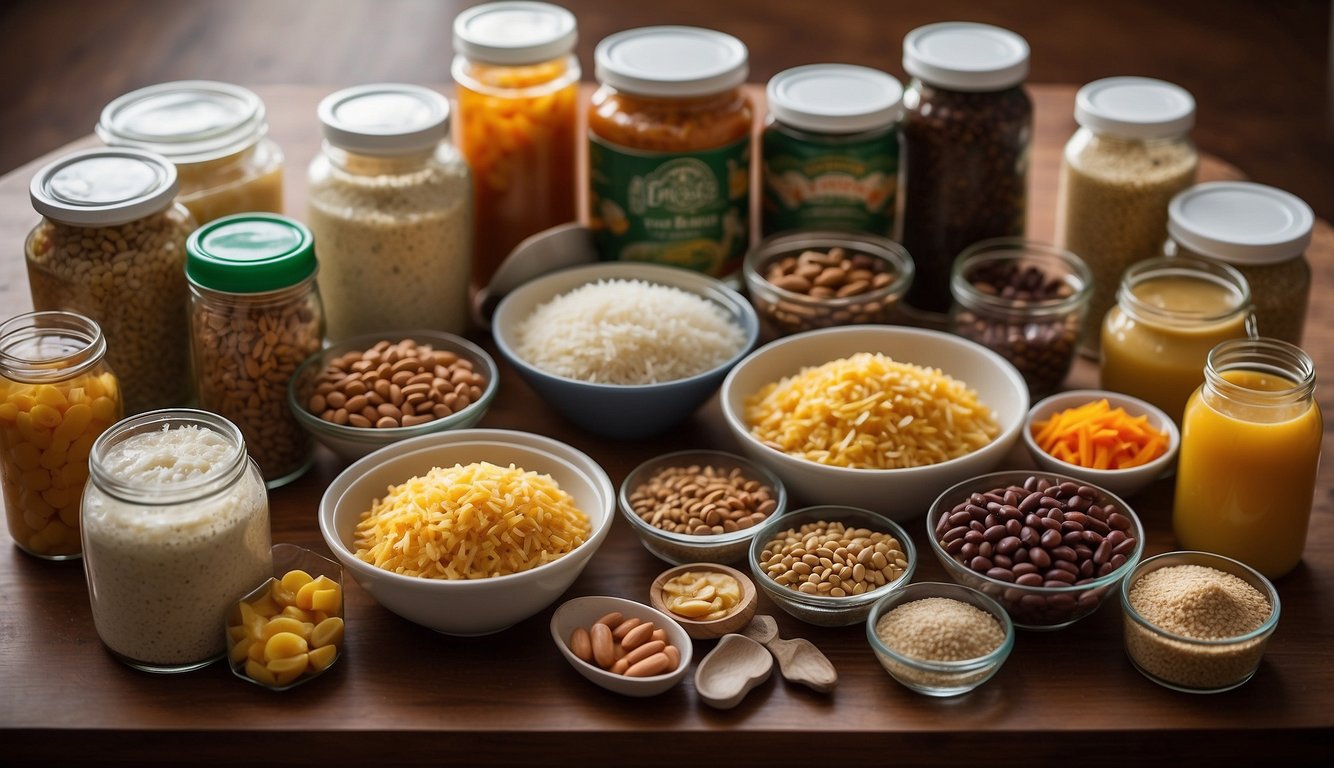
When packing for NYSC camp, it’s important to bring along essential food items that will keep you energized and satisfied throughout your stay. Here are some must-have food items to consider bringing:
Non-Perishable Staples
Non-perishable staples are a great option for campers, as they are easy to store and can last for a long time. Some examples of non-perishable staples include:
- Rice
- Pasta
- Canned beans
- Canned vegetables
- Instant noodles
- Oatmeal
These items can be cooked on a camp stove or in a microwave, and can be combined with other ingredients to create a variety of meals.
Snacks and Quick Bites
Snacks and quick bites are perfect for those times when you need a quick boost of energy or a small snack to tide you over until your next meal. Some examples of snacks and quick bites to bring to NYSC camp include:
- Granola bars
- Trail mix
- Jerky
- Dried fruit
- Crackers
- Peanut butter
These items are easy to pack and can be eaten on-the-go, making them perfect for busy camp schedules.
Beverages and Refreshments
Staying hydrated is important, especially when you’re spending time outdoors in the sun. In addition to water, consider bringing along some other beverages and refreshments to keep you cool and refreshed. Some options include:
- Sports drinks
- Juice boxes
- Tea bags
- Instant coffee
- Powdered drink mixes
These items can be mixed with water to create a refreshing beverage, and can be enjoyed at any time of day.
Overall, packing essential food items for NYSC camp is an important part of preparing for a successful and enjoyable experience. By bringing along a variety of non-perishable staples, snacks, and beverages, you can ensure that you have everything you need to stay energized and satisfied throughout your stay.
Nutrition and Balance
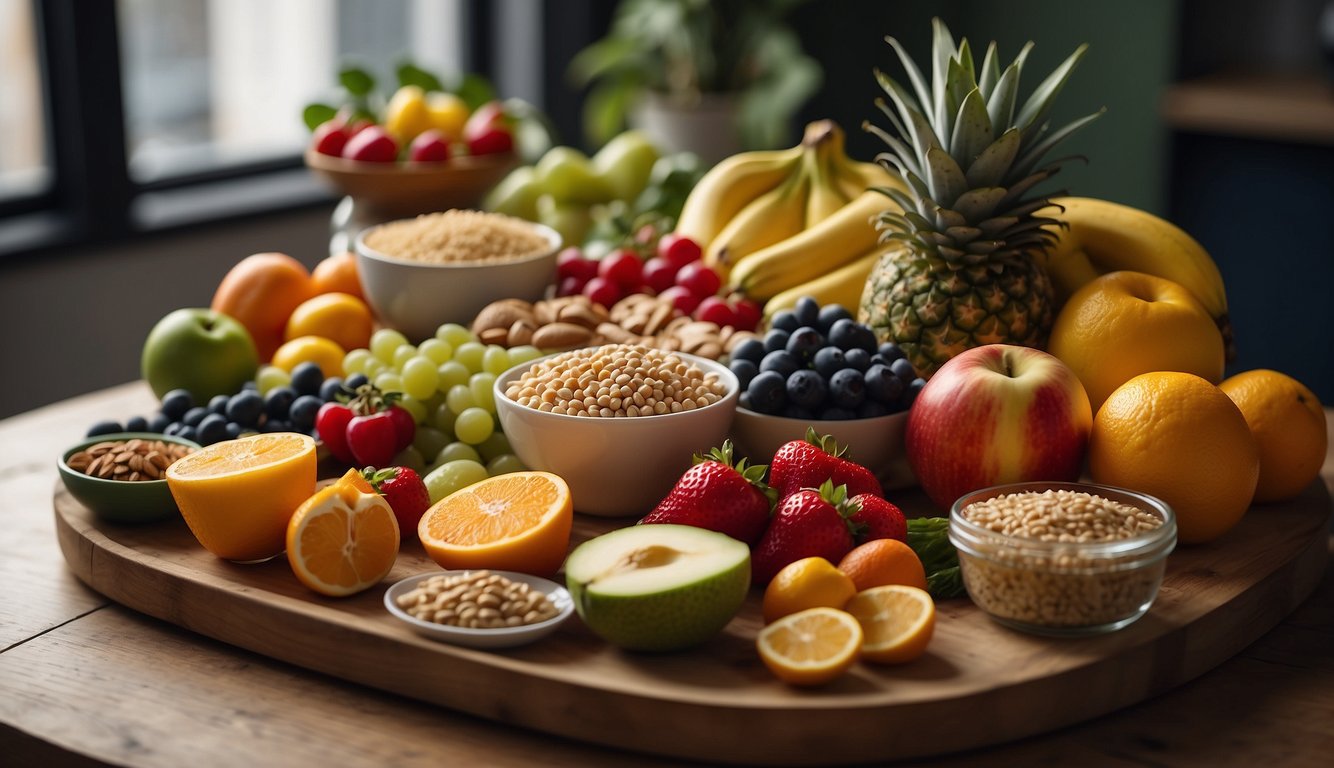
When packing food for NYSC camp, it is important to consider the nutritional value of the food you are taking. This will help ensure that you have enough energy to carry out your daily activities and stay healthy throughout your stay at camp.
Proteins for Sustenance
Proteins are essential for the growth, repair, and maintenance of body tissues. They are also important for building muscle mass and providing energy.
When packing food for camp, make sure to include protein-rich foods such as beans, nuts, seeds, eggs, chicken, and fish. These foods will help keep you full and satisfied for longer periods of time, and provide the necessary nutrients to support your physical activity.
Vitamins and Minerals Source
Vitamins and minerals are essential for maintaining good health and preventing diseases. They are found in a variety of foods, including fruits, vegetables, whole grains, and dairy products.
When packing food for camp, make sure to include a variety of fruits and vegetables to ensure that you are getting enough vitamins and minerals. You can also consider taking multivitamins to supplement your diet.
To ensure that you are getting a balanced diet, it is important to include foods from all food groups. This includes carbohydrates, proteins, fats, fruits, vegetables, and dairy products. You can create a meal plan that includes a variety of foods from each food group to ensure that you are getting all the necessary nutrients.
In conclusion, packing nutritious food for NYSC camp is important for maintaining good health and energy levels.
By including a variety of foods from all food groups, you can ensure that you are getting all the necessary nutrients to support your physical activity and stay healthy throughout your stay at camp.
Food Storage and Preservation
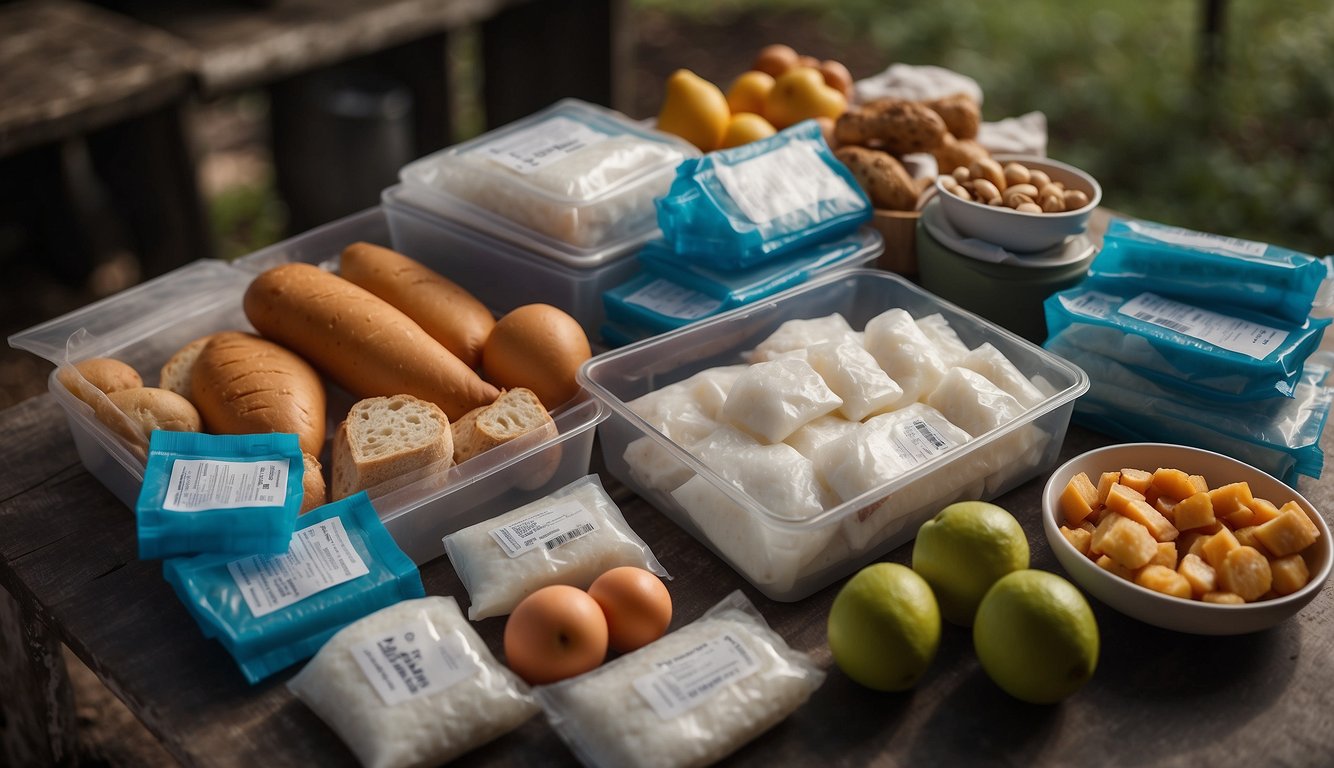
Containers and Packaging
When packing food items for NYSC camp, it is important to use appropriate containers and packaging to ensure that your food stays fresh and safe to eat.
Consider investing in high-quality, airtight containers that are designed specifically for food storage. These containers will help to keep your food fresh and prevent it from spoiling quickly.
When choosing packaging for your food items, opt for materials that are durable and can withstand the rigors of travel and storage. Glass jars and plastic containers with tight-fitting lids are great options for storing dry goods, while insulated containers and coolers are ideal for keeping perishable items like meat and dairy products cold.
Managing Perishables
Perishable food items like meat, dairy products, and fresh produce require special attention when it comes to storage and preservation. To keep these items fresh and safe to eat, it is important to keep them at the appropriate temperature and to consume them within a reasonable timeframe.
When packing perishable items for NYSC camp, be sure to use insulated containers or coolers to keep them cold. Use ice packs or frozen water bottles to help maintain a consistent temperature and prevent spoilage. Additionally, be sure to consume perishable items within a few days to prevent them from going bad.
By using appropriate containers and packaging and managing perishable items properly, you can ensure that your food stays fresh and safe to eat throughout your time at NYSC camp.
Cooking and Preparation

Portable Cooking Appliances
When it comes to cooking at NYSC camp, you need to be mindful of the limited resources available. Portable cooking appliances are a great option as they are easy to carry and can be used for various cooking methods.
A portable gas stove is a popular choice as it is easy to use and can be used to cook a wide range of meals. You can also consider using a portable grill or a camping stove.
Utensils and Cutlery
Having the right utensils and cutlery is essential for cooking at NYSC camp. You should consider bringing a set of durable plastic plates, cups, and bowls, as well as a set of cutlery. It is also important to bring a few cooking utensils such as a spatula, ladle, and a sharp knife. Don’t forget to bring a can opener and a bottle opener, as these can come in handy.
To make your cooking experience easier, you can also bring a few extras such as a cutting board, a colander, and a measuring cup. These items can help you prepare your meals more efficiently and ensure that your food is cooked to perfection.
Overall, it is important to keep in mind that you will have limited space and resources at NYSC camp. Therefore, it is essential to pack only the necessary cooking appliances and utensils. With the right tools and a little creativity, you can whip up delicious meals that will keep you energized throughout your stay at camp.
Special Dietary Needs
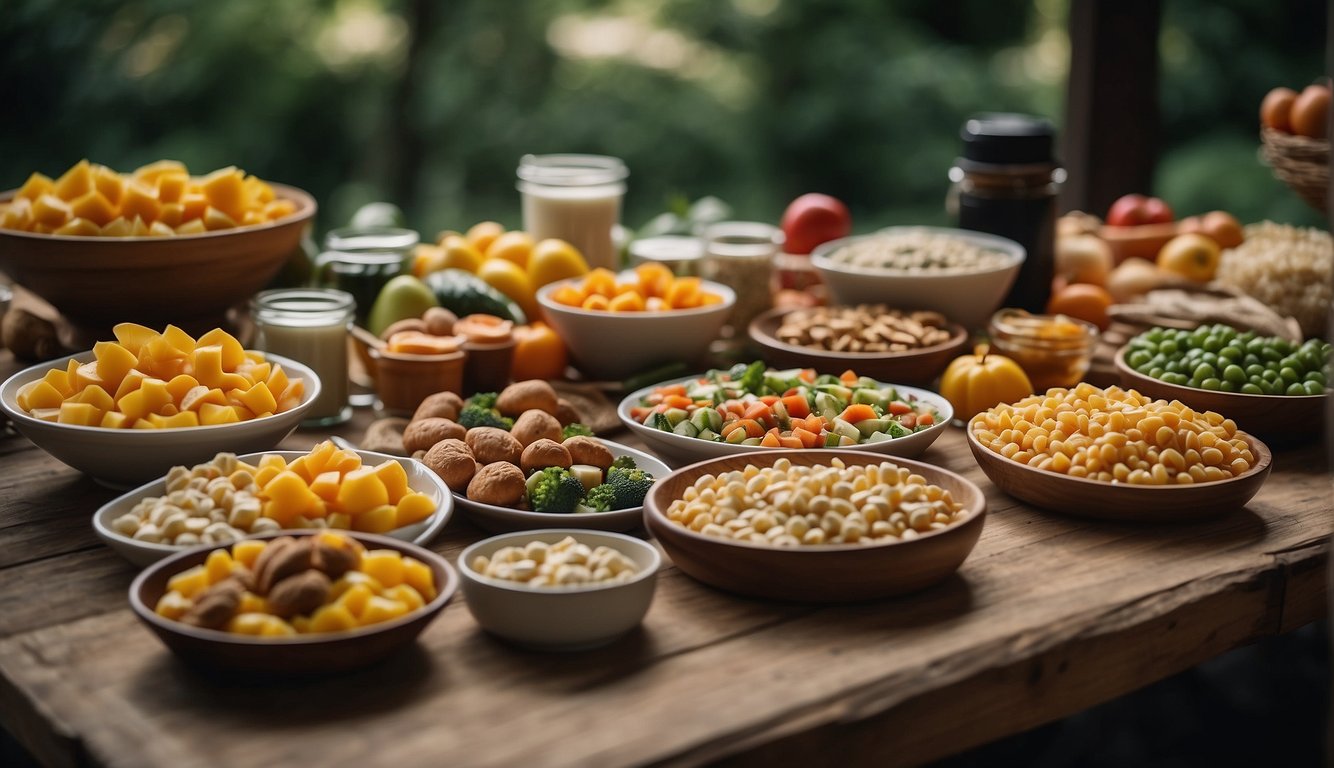
If you have special dietary needs, it’s important to plan ahead and bring the right foods to NYSC camp.
Here are some options for vegetarians, vegans, and those with allergies.
Vegetarian and Vegan Options
If you’re a vegetarian or vegan, you may be concerned about finding enough protein and other nutrients at camp. Fortunately, there are plenty of options available.
- Beans and legumes: Bring canned or dried beans and lentils, which are a great source of protein and fiber.
- Nuts and seeds: These are a great source of healthy fats, protein, and other nutrients. Bring a variety of nuts and seeds, such as almonds, walnuts, sunflower seeds, and chia seeds.
- Tofu and tempeh: These are great sources of protein and can be used in a variety of dishes, such as stir-fries and curries.
- Vegetables and fruits: Make sure to bring a variety of colorful vegetables and fruits to get all the nutrients you need.
Allergy-Friendly Foods
If you have allergies, it’s important to be careful when choosing foods to bring to camp. Here are some options that are safe for those with common allergies.
- Gluten-free options: Bring gluten-free bread, crackers, and pasta. You can also bring rice, quinoa, and other gluten-free grains.
- Dairy-free options: Bring non-dairy milk, such as almond or soy milk. You can also bring dairy-free cheese and yogurt.
- Nut-free options: Bring seeds and seed butters, such as sunflower seed butter or tahini. You can also bring snacks that are labeled as nut-free.
Remember to read ingredient labels carefully and bring any necessary medications or emergency supplies. With a little planning, you can make sure you have plenty of delicious and nutritious food to eat at NYSC camp.
Budgeting for Camp Food
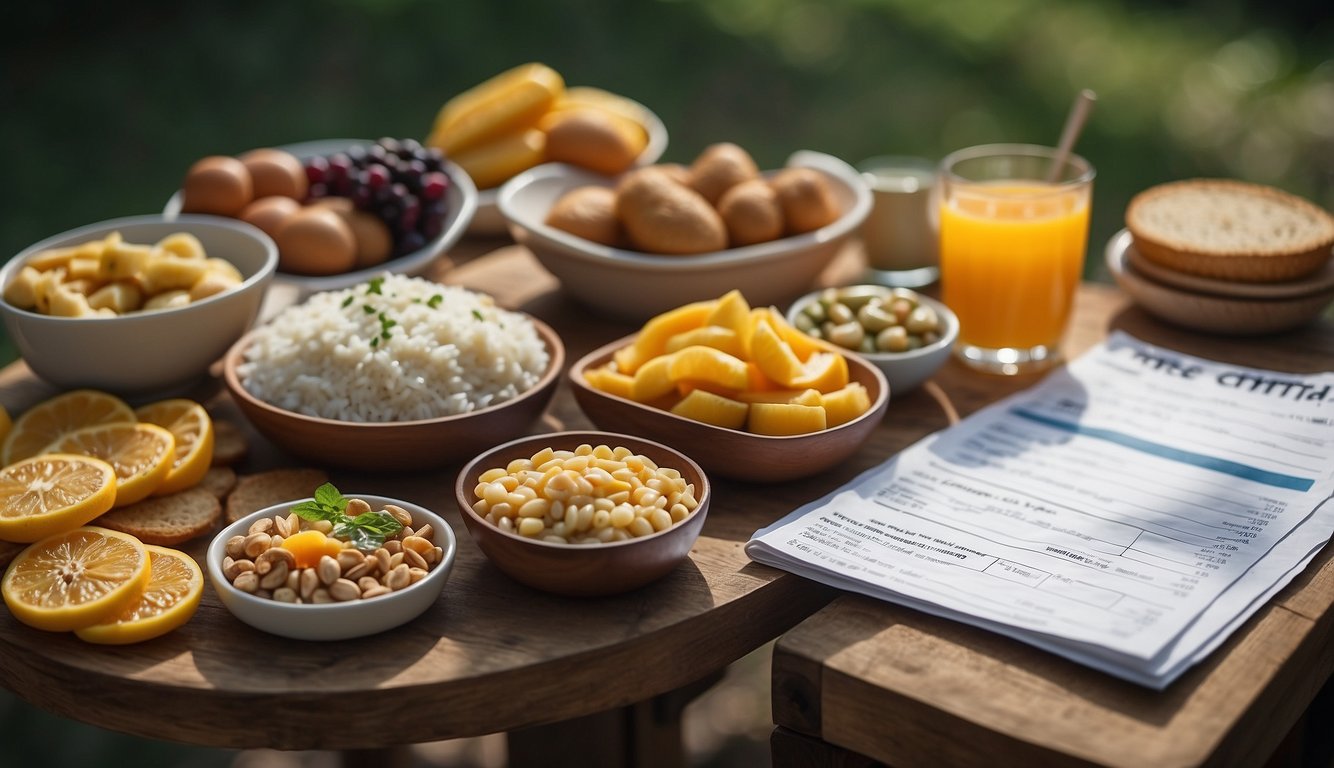
When preparing for NYSC camp, it’s important to budget for your food expenses. This will help you to manage your finances effectively and ensure that you don’t run out of money while at camp. Here are some cost-effective choices you can make when planning your camp food budget.
Cost-Effective Choices
- Plan your meals ahead of time: Before heading to camp, plan your meals for the duration of your stay. This will help you to avoid impulse buying and save money in the long run.
- Choose simple meals: Stick to simple, easy-to-prepare meals that don’t require a lot of ingredients. This will help you to save money on groceries and reduce food waste.
- Shop at local markets: Local markets are usually cheaper than supermarkets, so consider buying your groceries there. You can also haggle for better prices and get fresh produce.
Buying in Bulk
Buying in bulk is another way to save money on camp food. Here are some tips to help you buy in bulk:
- Make a list: Before heading to the store, make a list of the items you need to buy in bulk. This will help you to stay focused and avoid buying unnecessary items.
- Check prices: Compare prices of bulk items at different stores to find the best deals. You can also check online stores for better prices.
- Store properly: Properly store your bulk items to prevent spoilage. Use airtight containers and store in a cool, dry place.
By following these tips, you can effectively budget for your camp food expenses and save money while at NYSC camp.
Food Safety Tips
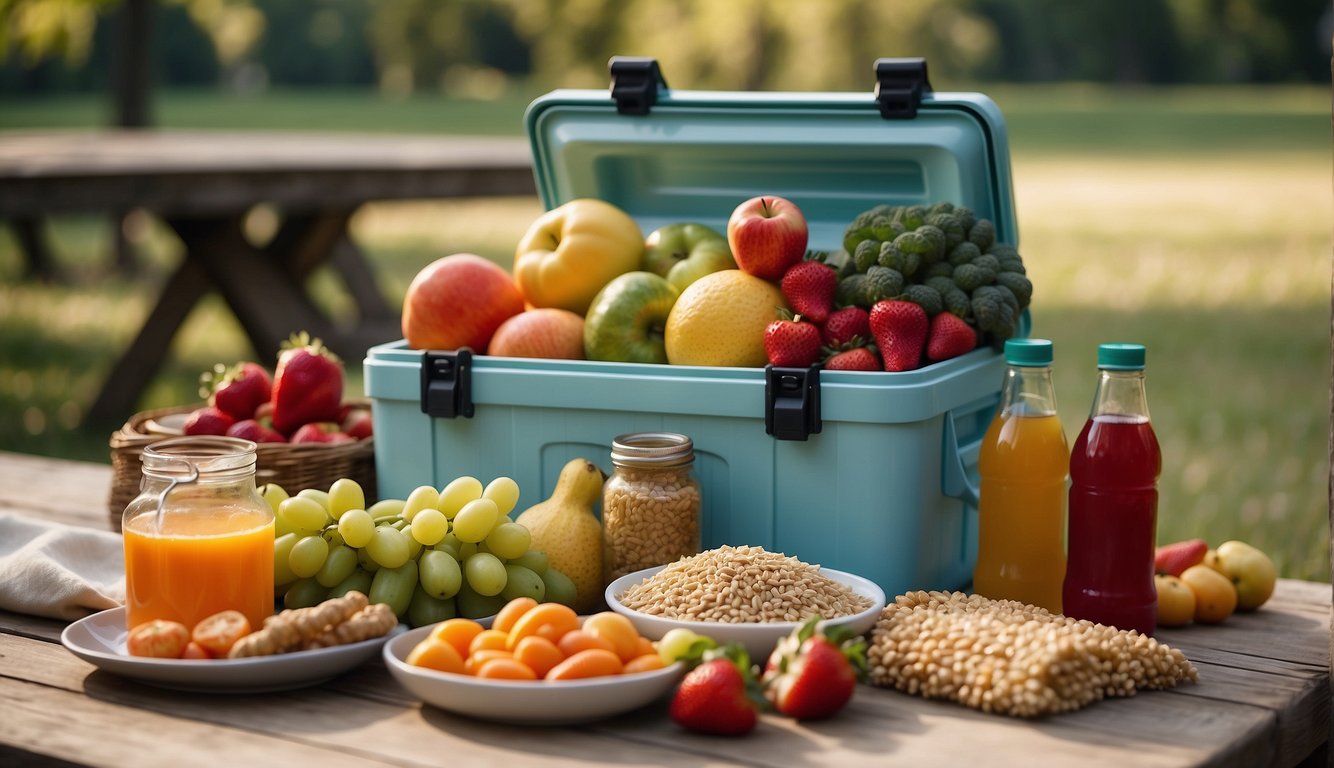
Hygiene Practices
Maintaining good hygiene practices is crucial when preparing food to take to NYSC camp. Always wash your hands thoroughly with soap and water before handling any food items. Use clean utensils and cooking equipment to avoid cross-contamination. Make sure to keep your cooking area clean and sanitized.
Avoiding Foodborne Illnesses
Foodborne illnesses can be prevented by taking necessary precautions. Make sure to store your food properly, especially perishable items like meat and dairy products. Keep them in a cooler with ice or freezer packs to maintain a safe temperature. Avoid consuming raw or undercooked meat, poultry, and eggs. Make sure to cook your food to the appropriate temperature to kill any harmful bacteria.
Here are some additional tips to help you avoid foodborne illnesses:
- Wash fruits and vegetables thoroughly before eating or cooking them.
- Use bottled water or boiled water for drinking and cooking.
- Avoid eating food from street vendors or unhygienic eateries.
- Discard any food that looks or smells suspicious, even if it hasn’t yet expired.
By following these food safety tips, you can ensure that the food you take to NYSC camp is safe and healthy to eat.
